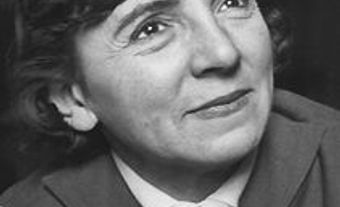McPhee, Colin
McPhee, Colin (Carhart). Composer, ethnomusicologist, pianist, writer, b Montreal 15 Mar 1900, d Los Angeles 7 Jan 1964. He studied piano and composition with Gustav Strube at the Peabody Cons in Baltimore, Md, where he graduated in 1921, and then studied piano 1921-4 with Arthur Friedheim in Toronto. In May 1920 he had premiered his Concerto No. 1 for piano with the Peabody Orchestra in Baltimore. With the New SO (TSO) he performed his Concerto No. 2 15 Jan 1924 under the direction of Luigi von Kunits. Musical Canada (February 1924) called the work 'interesting, as it depicts very forcibly the modern spirit of youth - headstrong, heedless, at times quite unreasonable.' McPhee studied 1924-6 in Paris with Paul Le Flem (composition) and Isidor Philipp (piano). Also a pupil of Varèse in New York and a winner of two Guggenheim scholarships, he lived 1931-8 in Indonesia, particularly in Bali and Java. His studies of the music, dance, and theatre of these regions gained him international recognition as an authority on the subjects. They also influenced several of his symphonic and choral compositions. The rhythms and resonances of the gamelan orchestra are found particularly in Tabuh-Tabuhan, 'toccata for orchestra and two pianos' (1936), composed at the request of Carlos Chávez for the National Orchestra of Mexico. Frequently performed later, this work was part of the program of Canadian music conducted by Leopold Stokowski 16 Oct 1953 at Carnegie Hall. It won its composer the American Academy of Arts and Letters' Prize in 1954, and it was recorded in 1956 by the Eastman Rochester Orchestra under Howard Hanson (Mer MG-50103/SRI-75 116).
During World War II, McPhee was a musical adviser to the US Military Information Office; at the request of the United Nations he composed the music for three documentaries in the 1950s. In 1941, with Benjamin Britten at the second piano and Georges Barrère on flute, he recorded his Balinese Ceremonial Music (1938) on Schirmer records (three 78s). Among McPhee's other compositions may be cited Four Iroquois Dances for orchestra (1944), three symphonies (1930, 1957, 1960) for orchestra, Sea Shanty Suite (1929) for baritone, male choir, two pianos, and two sets of timpani. His Concerto for piano and wind octet (1928) was recorded by Grant Johannesen (1956, Col ML-5105/CRI SD-315), and also by members of the CBC Vancouver Chamber Orchestra and Linda Lee Thomas, together with his Nocturne (1958). The Nocturne also was recorded by the Hessian Radio SO under David Van Vactor (ca 1967, CRI USD-219), and the Symphony No. 2 was recorded by the Louisville Orchestra, with Robert Whitney conducting (1958, Louisville 592). The harpsichordist Sylvia Marlowe recorded Lagu Délem for Decca (1959, DL-710001). McPhee also composed the wartime song 'Arm, Canadians' (Whaley Royce 1917). Several of his works were published by Associated Music, Kalmus, Peters, and G. Schirmer, and his early Four Piano Sketches, Opus 1 were published in Toronto by the Empire Music and Travel Club (1916, reproduced in CMH, vol 6).
As a writer, McPhee's publications include three works dealing with his years in Indonesia: A House in Bali (New York 1946, 1981), A Club of Small Men (New York 1947), and Music in Bali (New Haven 1957, New York 1976). He also reviewed compositions 1939-45 for Modern Music, the publication of the US League of Composers. He taught at various institutions including 1960-3 the University of California in Los Angeles. He was an affiliate of BMI. His papers are held at the New York Public Library and the University of California in Los Angeles.

 Share on Facebook
Share on Facebook Share on X
Share on X Share by Email
Share by Email Share on Google Classroom
Share on Google Classroom

